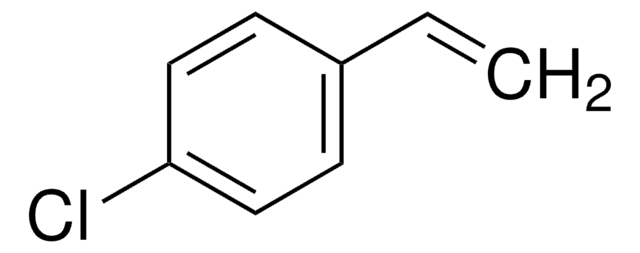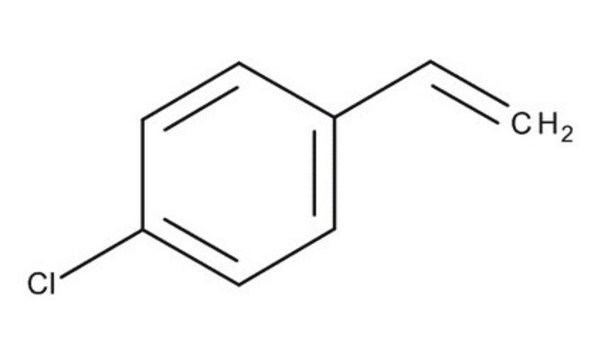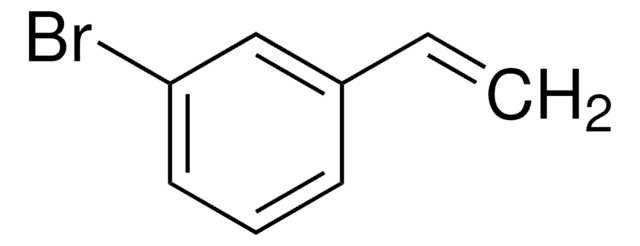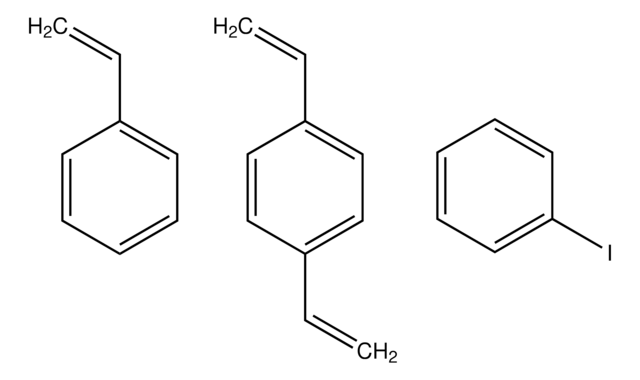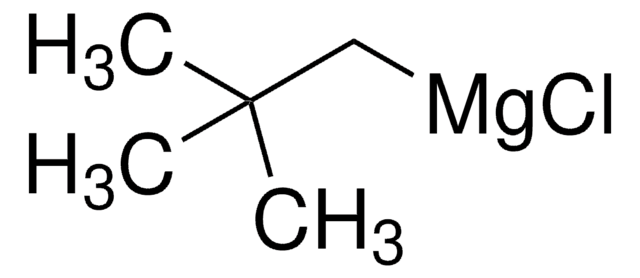124141
4-Bromostyrene
contains 0.05% 3,5-di-tert-butylcatechol as inhibitor, 97%
Synonyme(s) :
1-(4-Bromophenyl)ethylene, 1-Bromo-4-ethenylbenzene, 1-Bromo-4-vinylbenzene, 4-Vinyl-1-bromobenzene, p -Bromostyrene
About This Item
Produits recommandés
Niveau de qualité
Pureté
97%
Forme
liquid
Contient
0.05% 3,5-di-tert-butylcatechol as inhibitor
Indice de réfraction
n20/D 1.594 (lit.)
Point d'ébullition
89 °C/16 mmHg (lit.)
Densité
1.4 g/mL at 25 °C (lit.)
Température de stockage
−20°C
Chaîne SMILES
Brc1ccc(C=C)cc1
InChI
1S/C8H7Br/c1-2-7-3-5-8(9)6-4-7/h2-6H,1H2
Clé InChI
WGGLDBIZIQMEGH-UHFFFAOYSA-N
Vous recherchez des produits similaires ? Visite Guide de comparaison des produits
Catégories apparentées
Description générale
Application
- Structure activity relationships (SAR) study of the chemical and biochemical properties of the vinyl group of styrene.
- Synthesis of silsesquioxanes (SQ) having 4-bromostyrenyl substituents.
- To investigate the photochemical growth of Br-terminated self-assembled monolayers (SAMs) on Si(111).
- Synthesis of poly(1,4-phenylenevinylene), via Heck reaction.
- Synthesis of nitroolefins, via alkene cross-metathesis.
Mention d'avertissement
Warning
Mentions de danger
Conseils de prudence
Classification des risques
Eye Irrit. 2 - Skin Irrit. 2
Code de la classe de stockage
10 - Combustible liquids
Classe de danger pour l'eau (WGK)
WGK 3
Point d'éclair (°F)
167.0 °F - closed cup
Point d'éclair (°C)
75 °C - closed cup
Équipement de protection individuelle
Eyeshields, Gloves, type ABEK (EN14387) respirator filter
Faites votre choix parmi les versions les plus récentes :
Déjà en possession de ce produit ?
Retrouvez la documentation relative aux produits que vous avez récemment achetés dans la Bibliothèque de documents.
Les clients ont également consulté
Notre équipe de scientifiques dispose d'une expérience dans tous les secteurs de la recherche, notamment en sciences de la vie, science des matériaux, synthèse chimique, chromatographie, analyse et dans de nombreux autres domaines..
Contacter notre Service technique